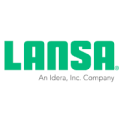January 14, 2022

January 14, 2022 | Volume 14 Issue 66
- LEAD ARTICLE: Getting Started: Free vs. Fixed and Internal Documentation in ILE RPG Programming
- FEATURED WHITE PAPER: The Power of Writing Code in a Low-Code Solution
- FEATURED NEWS: IBM Welcomes LG Electronics to the IBM Quantum Network to Advance Industry Applications of Quantum Computing
- WHITE PAPER DOWNLOAD: Why Migrate When You Can Modernize?
- WEBCAST LEARNING: The Biggest Mistakes in IBM i Security
- MC VIDEO SHOWCASE: TLAForms - Software to Design and Generate Forms on IBM i
- EVENT: 2022 January OCEAN Meeting - IBM Champion Charles Guarino in Person

Getting Started: Free vs. Fixed and Internal Documentation in ILE RPG Programming
Part three of getting started ILE RPG program addresses free vs. fixed and internal documentation. Read parts one and two here: Getting Started: Sections & a Sample of ILE RPG Programs and here: Getting Started: Building the ILE RPG Program and Navigating Legacy Code
By Brian Meyers and Jim Buck
Editor's Note: This article is excerpted from chapter 2 of Programming in ILE RPG, Fifth Edition.
Free vs. Fixed
As you can see, RPG’s free-format instructions have a more consistent, modern layout than do the fixed-format equivalents. If you are using free format, you’ll probably find it easier to concentrate on your program’s logic instead of its exact positional syntax. In addition, free-format operations allow you to use indentation to visually explain blocks of related code. You don’t need to remember which operation codes support which C-spec layout if you are using free format.
IBM Quantum Computer Demonstrates Next Step Towards Moving Beyond Classical Supercomputing

The Power of Writing Code in a Low-Code Solution
When it comes to creating your business applications, there are hundreds of coding platforms and programming languages to choose from.
By LANSA, an Idera, Inc. Company
Editor's Note: This article is excerpted from the white paper, The Power of Writing Code in a Low-Code Solution available for download in the MC Press White Paper Center.
These options range from very complex, traditional programming languages to low-code platforms where sometimes no traditional coding experience is needed. Low-code platforms range from not using a programming language at all to using a very detailed programming language to supplement the low-code functionality.
A detailed guide for knowing the difference in the platforms and when to use which one can be found here. Traditional programming languages provide great power and flexibility but at the cost of complexity and time. Enterprises are looking for a faster way to get new applications to market, and that’s where low-code development platforms come in.
|
Supply Chain is becoming increasingly complex and unpredictable. From raw materials for manufacturing to food supply chains, the journey from source to production to delivery to consumers is marred with inefficiencies, manual processes, shortages, recalls, counterfeits, and scandals.
Watch Now. |
|
More than ever, there is a demand for IT to deliver innovation. Your IBM i has been an essential part of your business operations for years. However, your organization may struggle to maintain the current system and implement new projects. The thousands of customers we've worked with and surveyed state that expectations regarding the digital footprint and vision of the company are not aligned with the current IT environment. Get your copy of this important guide today! Download your copy today! |

IBM Welcomes LG Electronics to the IBM Quantum Network to Advance Industry Applications of Quantum Computing
LG Electronics joins IBM Quantum Network and aims to explore applications of quantum computing to support big data, artificial intelligence, connected cars, digital transformation, IoT, and robotics applications
By IBM Corporation
IBM today announced that LG Electronics has joined the IBM Quantum Network to advance the industry applications of quantum computing.
By joining the IBM Quantum Network, IBM will provide LG Electronics access to IBM's quantum computing systems, as well as to IBM's quantum expertise and Qiskit, IBM's open-source quantum information software development kit.

















 Business users want new applications now. Market and regulatory pressures require faster application updates and delivery into production. Your IBM i developers may be approaching retirement, and you see no sure way to fill their positions with experienced developers. In addition, you may be caught between maintaining your existing applications and the uncertainty of moving to something new.
Business users want new applications now. Market and regulatory pressures require faster application updates and delivery into production. Your IBM i developers may be approaching retirement, and you see no sure way to fill their positions with experienced developers. In addition, you may be caught between maintaining your existing applications and the uncertainty of moving to something new. IT managers hoping to find new IBM i talent are discovering that the pool of experienced RPG programmers and operators or administrators with intimate knowledge of the operating system and the applications that run on it is small. This begs the question: How will you manage the platform that supports such a big part of your business? This guide offers strategies and software suggestions to help you plan IT staffing and resources and smooth the transition after your AS/400 talent retires. Read on to learn:
IT managers hoping to find new IBM i talent are discovering that the pool of experienced RPG programmers and operators or administrators with intimate knowledge of the operating system and the applications that run on it is small. This begs the question: How will you manage the platform that supports such a big part of your business? This guide offers strategies and software suggestions to help you plan IT staffing and resources and smooth the transition after your AS/400 talent retires. Read on to learn: